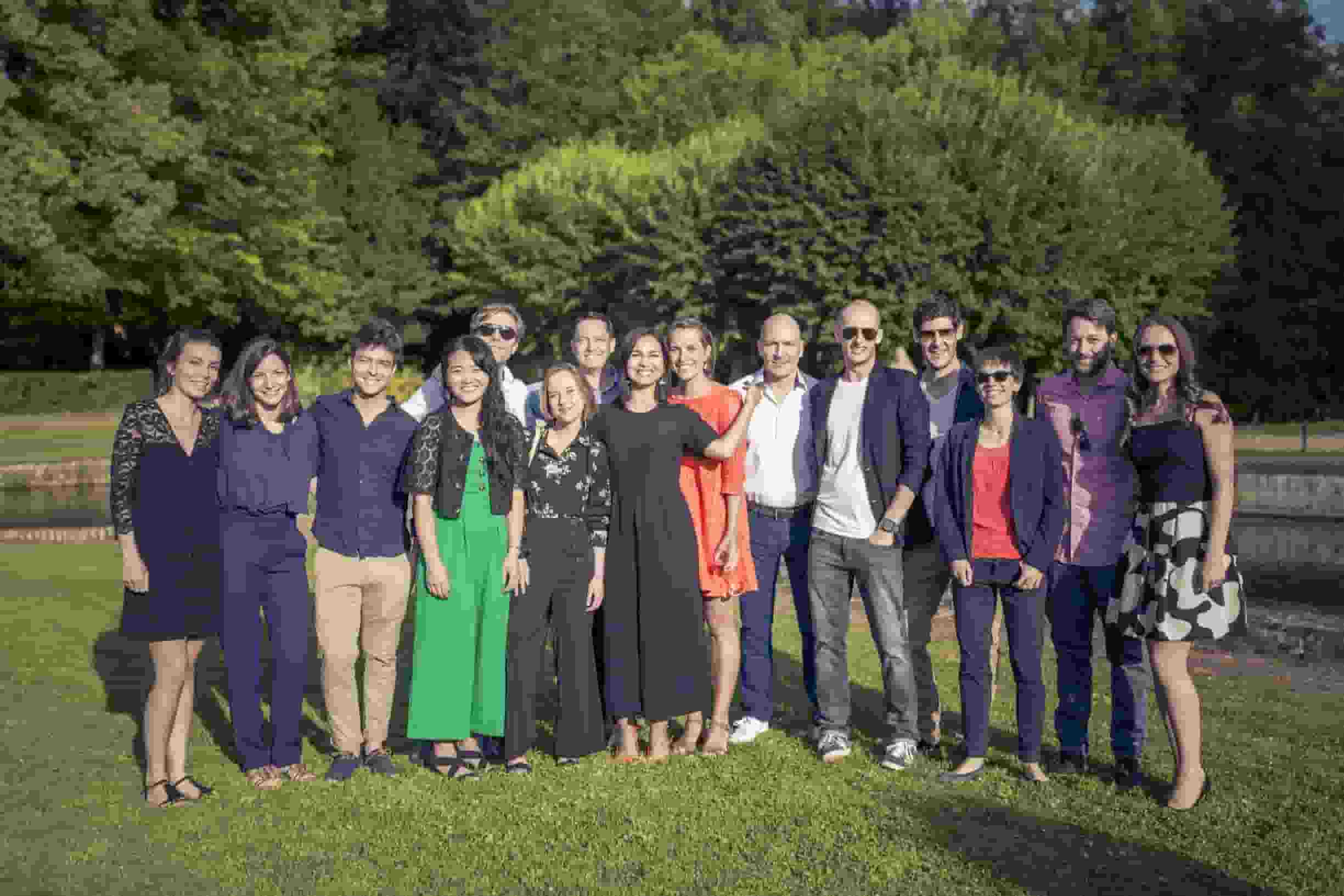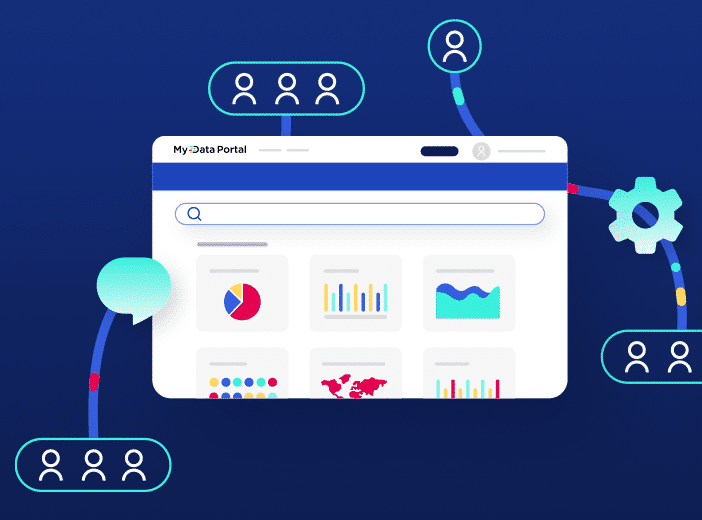Meet Clara, Public Sector Sales Manager

After discovering the Product Team (with Sébastien) and the CSM Team (with James), let's now turn our attention to the Sales Team, and in particular, Opendatasoft employee Clara.
After discovering the Product Team (with Sébastien) and the CSM Team (with James), let’s now turn our attention to the Sales Team, and in particular, Opendatasoft employee Clara.
Clara joined the Public Sector Sales Team about a year ago, and we’ve been fascinated by her enthusiasm ever since. Clara is extremely passionate about her profession and the data-sharing ecosystem, as can be seen in her blog article entitled “Covid-19: Rethinking the value of data during global health crises.” Ready to meet her?
Hi Clara! Our readers are eager to learn more about you! Can you tell us about your background? How did you end up at Opendatasoft (ODS)?
Hi Chloé! After high school, I started studying at Sciences Po (in Paris). While pursuing a Master’s degree in Urban Policy, I discovered the challenges associated with smart cities, data, and governance. I learned just how valuable data sharing can be to projects, as well as the vital role it plays when it comes to understanding contemporary urban policies.
It sounds like you were already interested in data sharing during your studies. Where did this interest come from?
There’s a common thread that runs through my background: a passion for data. Once I became interested in data, it wasn’t long before I wanted to know where it came from. Who produces it? Why? For whom? How is it reused?
During my studies, I took part in an educational project for which I was required to explore the issues surrounding the regulation of short-term furnished apartment rental platforms in various European cities. To complete the project, I had to search for data. As this data was extremely hard to come by, I began to understand the challenges and obstacles associated with data sharing… and the many opportunities it represents! Once I started getting my hands on interesting data, I immediately asked myself if it fulfilled my needs. And if not, what could I use it for?
This boded well for your future in the data-sharing industry! What did you do after you graduated?
I spent 6 months interning at Datactivist, a company that helps other companies and organizations implement open data projects. Datactivist assists with every stage of a project and organizes training courses and events.
This internship allowed me to showcase the entire open data ecosystem. My goal was (and still is) to demonstrate that data sharing is not just a pledge, but has a considerable impact on the way organizations function and the value they contribute to society.
Like my studies, my experience at Datactivist was mostly based on theory. After the internship, I wanted to find a job that was more “hands-on.” I wanted to delve deeper into projects and have more direct interactions with the producers of data. During my time at Datactivist, I was in contact with some of the employees at ODS, so when I saw the ad for the Public Sector Sales Manager, I applied immediately!
It sounds like you were the perfect fit for the job! But what about the sales part? That was new for you, wasn't it? Does the job match your personality?
It’s definitely a big leap from theory to sales, but I have good people skills so the job suits me well. I did some volunteer work which was really fun and was introduced to sales during a short internship in a real estate agency. But I’ve had to go a step further and learn the procedures, mentality, and interpersonal rules that are vital to any sales approach.
For me, ODS is a new beginning. My coworkers have helped me learn the ropes gradually, to grasp things at my own pace and find the right balance between my analytical and people skills.
 Copy to clipboard
Copy to clipboard
You started working at ODS in July 2019, right?
Yes, exactly. And I was lucky to experience an onboarding like no other… My first two days were spent off-site with all the employees of ODS, which allowed me to get to know everyone quite quickly. I got the feeling that we were all in the same boat. It was extremely rewarding and made me want to invest myself even more in the company.
That is definitely the best way to become familiar with a company's culture! Can you tell us exactly what your job entails? Everyone knows that a salesperson sells, but their tasks can vary greatly from one company to another, right?
Absolutely! First and foremost, my work involves long periods of observation. I monitor everything that happens in the data ecosystem and in local communities. Next, I do market research to identify the organizations to be contacted in each community, depending on the subject of the data.
My job is to increase the value of these organizations, to demonstrate that I understand their needs – and that ODS can meet them. Sometimes I also highlight the needs they may have overlooked… the ODS platform is useful for solving many problems, from the limitations imposed by the Lemaire Law to the digitization of services and the facilitation of exchanges between hierarchical levels in both the public and private sectors.
As a member of the Public Sector Team, I also keep a close eye on current political events – in particular upcoming elections – to adapt to the schedules of our customers and prospects. Our team realizes that communities have their own political and economic systems, and experience has taught us to address each of these systems on an individual basis.
 Copy to clipboard
Copy to clipboard
This is something that really struck me when I joined the company: I saw that the salespeople were extremely knowledgeable and passionate about their chosen sector, as well as about data sharing in general.
Another thing: the needs of our customers and prospects are extremely diverse, which means we have to spend time on each individual case and come up with customized solutions. Our service is based on long-term use, and when it comes to our public sector customers, our sales processes can be quite long. You have to be patient!
When a company or organization begins working with ODS, its first interactions are with the CSM (Customer Success Manager) Team. Does this make CSMs the main points of contact for your customers? How do you stay in touch?
We maintain a direct and constant relationship with our customers. It is vital that we strengthen our ties with them, monitor the progress of their projects, and develop new ways to use their data. I also like to help them expand their knowledge of open data by sharing interesting and inspiring initiatives, articles, and ODS content.
The Sales Team is also in constant communication with the CSM Team. CSMs tackle the everyday technical problems of our customers and are therefore able to help us pinpoint positive aspects as well as obstacles.
Do you ever get to work "in the field?"
Yes, absolutely! We have booths at several events such as the “Forum des Interconnectés” in France and regularly attend other trade fairs. Our annual summit, Data On Board, is great for networking. It lets us share the feedback we receive from our customers and stay up-to-date on emerging issues. This work in the field is related to the “observation” part of my duties. As representatives of ODS, our job is to help showcase the ecosystem!
Which parts of your job do you like the most?
I love the learning parts, i.e. understanding the problems of our customers and coming up with appropriate solutions. I also enjoy sharing ODS success stories and seeing how these stories speak to others. As a salesperson, this is what sustains my passion for – and confidence in – our product.
I also enjoy having the freedom to discover other areas that interest me, such as mobility and tourism. This makes me feel like I’m doing my part.
What are your career goals?
I’d like to learn as much as possible about the field and become a genuine expert. I hope to learn more about the medium and long-term prospects of the product in order to develop my sales strategy, and find ways to enrich myself personally. I want to cultivate an increasingly constructive attitude with regard to the environment in which we work.
It may be a little off-topic, but I’d also like to examine the ways in which digital organizations can improve their carbon footprint. Although they are rarely singled out, data storage and (more generally) Internet-related technologies are sources of pollution that require immediate action. How can we develop a model for new technologies?
Luckily, many of my coworkers share my concerns and we’ve been able to launch a few initiatives.
It's a major concern, one that affects our generation directly... What do you like to do in your free time?
I like going for runs, exercising, hanging out with friends, and dancing! I’m an adrenaline junkie! My work can sometimes be abstract. These activities allow me to center myself and be creative. Dance is my passion. I hope it will play a bigger role in my life in the future. You may wonder, what do dance and data have in common? Both are interpreted in terms of flows! I also enjoy writing, even if it’s not something I do as often as I’d like.
My professional and personal activities complement each other naturally, which makes me really happy.
What are your aspirations for the future?
I want to continue to meet people with incredible projects and be amazed by my coworkers on a daily basis. I’m constantly impressed by them – by their skills, hobbies, and kindness.
We hope you get all you wish for, Clara! And thank you very much for this interview. Dear readers, we’ll see you back here soon for more datadventures!

How can you break down silos and make data available to everyone within your organization, not just data specialists? How do you get employees to use data effectively in their everyday working lives? This article explains the key features you need on your data portal to engage users and maximize data sharing and reuse.

Access to accurate statistical information is key to the successful functioning of the global economy and for policymakers and businesses to make informed decisions around subjects that impact us all. How can institutions effectively and efficiently share their statistical data in an interoperable, scalable way to democratize access and build trust?

